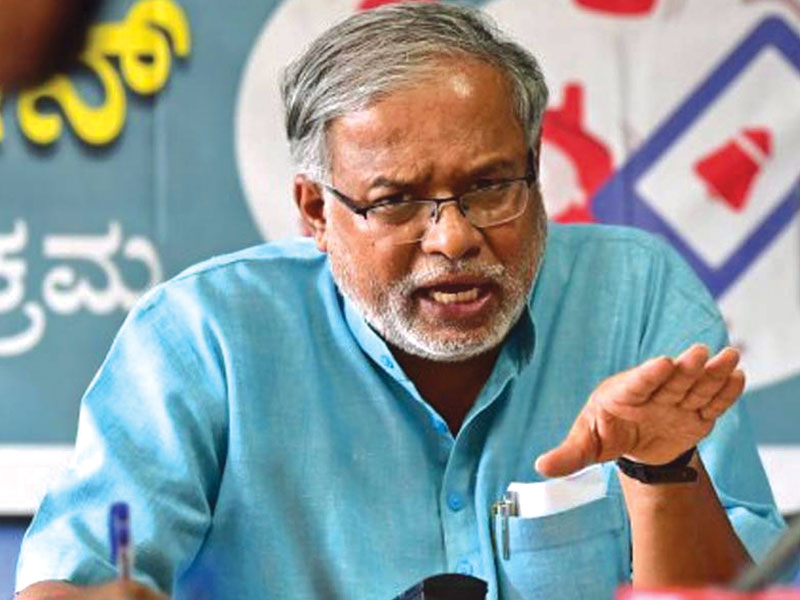– Bandana Brahmin (Bengaluru) There is mounting exasperation among educationists in the state over the BJP government’s repeated postponement of the date for reopening education institutions for fear of children and students contracting the Covid-19 virus. On November 23, primary and secondary education minister S. Suresh Kumar announced yet another reopening date postponement of preschools, primary, secondary and higher secondary schools which were scheduled to restart in-campus classes on December 1. This is the third time the schools reopening date has been deferred at the last minute. With the number of Covid-19 positive cases and fatalities falling sharply across the state — daily infections have fallen from a peak of 10,947 on October 7 to 998 on November 30 and fatalities from 113 to 13 — and retail markets, cinemas, bars, restaurants and colleges and universities back to doing business — albeit with prescribed safety protocols — there’s rising exasperation within the educators community over schools remaining shuttered. According to reliable sources within the state’s BJP government, the education ministry is in favour of restarting schools, but health ministry is against it. The state’s Covid-19 Technical Advisory Committee has clarified that the thin attendance in undergrad colleges which reopened on November 17, has influenced the government’s decision to keep schools shut until New Year. Meanwhile although the top 10 percent of high-end private schools have smoothly switched to online classes, children in the state’s 48,000 under-resourced government primaries are experiencing severe deprivation of learning, as also free-of-charge mid-day meals served in all government schools. According to a study titled Myths of Online Education conducted in September by the Bengaluru-based Azim Premji University in five states (Chhattisgarh, Madhya Pradesh, Rajasthan, Uttarakhand and Karnataka), the majority of teachers and parents find online teaching inadequate and ineffective. The survey which covered 1,522 government schools in 26 districts, indicates that over 60 percent of children can’t access online education because of poor Internet connectivity and/or lack of digital devices. Besides highlighting the widening digital divide between the upper, middle and other classes, the study says that 70 percent of parents believe that online education is ineffective and 90 percent are willing to send their children back to school, subject to their managements following elementary safety precautions. In this connection, despite a second surge in Covid cases, most European countries (Germany, Ireland, France, England) have exempted preschools and schools from lockdown rules. Denmark reopened schools in April after a month-long lockdown while schools never closed in Sweden. Even in Wuhan (China) — the fons et origo of the novel coronavirus pandemic — schools have been functional since September. The experience of these countries indicates that when safety protocols — masks, premises sanitation, social distancing, alternate days schooling etc — are observed, children are safer in schools than at home 24X7. “Schools — especially government schools in rural areas, which have very poor digital connectivity — should be reopened at once, subject to compliance with safety protocols. Fear for children’s safety must be balanced against the…
Karnataka: Educators exasperation
